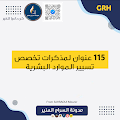https://server10.mp3quran.net/minsh/001.mp3الفاتحة
https://server10.mp3quran.net/minsh/002.mp3البقرة
https://server10.mp3quran.net/minsh/003.mp3آل عمران
https://server10.mp3quran.net/minsh/004.mp3النساء
https://server10.mp3quran.net/minsh/005.mp3المائدة
https://server10.mp3quran.net/minsh/006.mp3الأنعام
https://server10.mp3quran.net/minsh/007.mp3الأعراف
https://server10.mp3quran.net/minsh/008.mp3الأنفال
https://server10.mp3quran.net/minsh/009.mp3التوبة
https://server10.mp3quran.net/minsh/010.mp3يونس
https://server10.mp3quran.net/minsh/011.mp3هود
https://server10.mp3quran.net/minsh/012.mp3يوسف
https://server10.mp3quran.net/minsh/013.mp3الرعد
https://server10.mp3quran.net/minsh/014.mp3إبراهيم
https://server10.mp3quran.net/minsh/015.mp3الحجر
https://server10.mp3quran.net/minsh/016.mp3النحل
https://server10.mp3quran.net/minsh/017.mp3الإسراء
https://server10.mp3quran.net/minsh/018.mp3الكهف
https://server10.mp3quran.net/minsh/019.mp3مريم
https://server10.mp3quran.net/minsh/020.mp3طه
https://server10.mp3quran.net/minsh/021.mp3الأنبياء
https://server10.mp3quran.net/minsh/022.mp3الحج
https://server10.mp3quran.net/minsh/023.mp3المؤمنون
https://server10.mp3quran.net/minsh/024.mp3النور
https://server10.mp3quran.net/minsh/025.mp3الفرقان
https://server10.mp3quran.net/minsh/026.mp3الشعراء
https://server10.mp3quran.net/minsh/027.mp3النمل
https://server10.mp3quran.net/minsh/028.mp3القصص
https://server10.mp3quran.net/minsh/029.mp3العنكبوت
https://server10.mp3quran.net/minsh/030.mp3الروم
https://server10.mp3quran.net/minsh/031.mp3لقمان
https://server10.mp3quran.net/minsh/032.mp3السجدة
https://server10.mp3quran.net/minsh/033.mp3الأحزاب
https://server10.mp3quran.net/minsh/034.mp3سبأ
https://server10.mp3quran.net/minsh/035.mp3فاطر
https://server10.mp3quran.net/minsh/036.mp3يس
https://server10.mp3quran.net/minsh/037.mp3الصافات
https://server10.mp3quran.net/minsh/038.mp3ص
https://server10.mp3quran.net/minsh/039.mp3الزمر
https://server10.mp3quran.net/minsh/040.mp3غافر
https://server10.mp3quran.net/minsh/041.mp3فصلت
https://server10.mp3quran.net/minsh/042.mp3الشورى
https://server10.mp3quran.net/minsh/043.mp3الزخرف
https://server10.mp3quran.net/minsh/044.mp3الدخان
https://server10.mp3quran.net/minsh/045.mp3الجاثية
https://server10.mp3quran.net/minsh/046.mp3الأحقاف
https://server10.mp3quran.net/minsh/047.mp3محمد
https://server10.mp3quran.net/minsh/048.mp3الفتح
https://server10.mp3quran.net/minsh/049.mp3الحجرات
https://server10.mp3quran.net/minsh/050.mp3ق
https://server10.mp3quran.net/minsh/051.mp3الذاريات
https://server10.mp3quran.net/minsh/052.mp3الطور
https://server10.mp3quran.net/minsh/053.mp3النجم
https://server10.mp3quran.net/minsh/054.mp3القمر
https://server10.mp3quran.net/minsh/055.mp3الرحمن
https://server10.mp3quran.net/minsh/056.mp3الواقعة
https://server10.mp3quran.net/minsh/057.mp3الحديد
https://server10.mp3quran.net/minsh/058.mp3المجادلة
https://server10.mp3quran.net/minsh/059.mp3الحشر
https://server10.mp3quran.net/minsh/060.mp3الممتحنة
https://server10.mp3quran.net/minsh/061.mp3الصف
https://server10.mp3quran.net/minsh/062.mp3الجمعة
https://server10.mp3quran.net/minsh/063.mp3المنافقون
https://server10.mp3quran.net/minsh/064.mp3التغابن
https://server10.mp3quran.net/minsh/065.mp3الطلاق
https://server10.mp3quran.net/minsh/066.mp3التحريم
https://server10.mp3quran.net/minsh/067.mp3الملك
https://server10.mp3quran.net/minsh/068.mp3القلم
https://server10.mp3quran.net/minsh/069.mp3الحاقة
https://server10.mp3quran.net/minsh/070.mp3المعارج
https://server10.mp3quran.net/minsh/071.mp3نوح
https://server10.mp3quran.net/minsh/072.mp3الجن
https://server10.mp3quran.net/minsh/073.mp3المزمل
https://server10.mp3quran.net/minsh/074.mp3المدثر
https://server10.mp3quran.net/minsh/075.mp3القيامة
https://server10.mp3quran.net/minsh/076.mp3الإنسان
https://server10.mp3quran.net/minsh/077.mp3المرسلات
https://server10.mp3quran.net/minsh/078.mp3النبأ
https://server10.mp3quran.net/minsh/079.mp3النازعات
https://server10.mp3quran.net/minsh/080.mp3عبس
https://server10.mp3quran.net/minsh/081.mp3التكوير
https://server10.mp3quran.net/minsh/082.mp3الانفطار
https://server10.mp3quran.net/minsh/083.mp3المطففين
https://server10.mp3quran.net/minsh/084.mp3الانشقاق
https://server10.mp3quran.net/minsh/085.mp3البروج
https://server10.mp3quran.net/minsh/086.mp3الطارق
https://server10.mp3quran.net/minsh/087.mp3الأعلى
https://server10.mp3quran.net/minsh/088.mp3الغاشية
https://server10.mp3quran.net/minsh/089.mp3الفجر
https://server10.mp3quran.net/minsh/090.mp3البلد
https://server10.mp3quran.net/minsh/091.mp3الشمس
https://server10.mp3quran.net/minsh/092.mp3الليل
https://server10.mp3quran.net/minsh/093.mp3الضحى
https://server10.mp3quran.net/minsh/094.mp3الشرح
https://server10.mp3quran.net/minsh/095.mp3التين
https://server10.mp3quran.net/minsh/096.mp3العلق
https://server10.mp3quran.net/minsh/097.mp3القدر
https://server10.mp3quran.net/minsh/098.mp3البينة
https://server10.mp3quran.net/minsh/099.mp3الزلزلة
https://server10.mp3quran.net/minsh/100.mp3العاديات
https://server10.mp3quran.net/minsh/101.mp3القارعة
https://server10.mp3quran.net/minsh/102.mp3التكاثر
https://server10.mp3quran.net/minsh/103.mp3العصر
https://server10.mp3quran.net/minsh/104.mp3الهمزة
https://server10.mp3quran.net/minsh/105.mp3الفيل
https://server10.mp3quran.net/minsh/106.mp3قريش
https://server10.mp3quran.net/minsh/107.mp3الماعون
https://server10.mp3quran.net/minsh/108.mp3الكوثر
https://server10.mp3quran.net/minsh/109.mp3الكافرون
https://server10.mp3quran.net/minsh/110.mp3النصر
https://server10.mp3quran.net/minsh/111.mp3المسد
https://server10.mp3quran.net/minsh/112.mp3الإخلاص
https://server10.mp3quran.net/minsh/113.mp3الفلق
https://server10.mp3quran.net/minsh/114.mp3الناس




.jpg)






0تعليقات